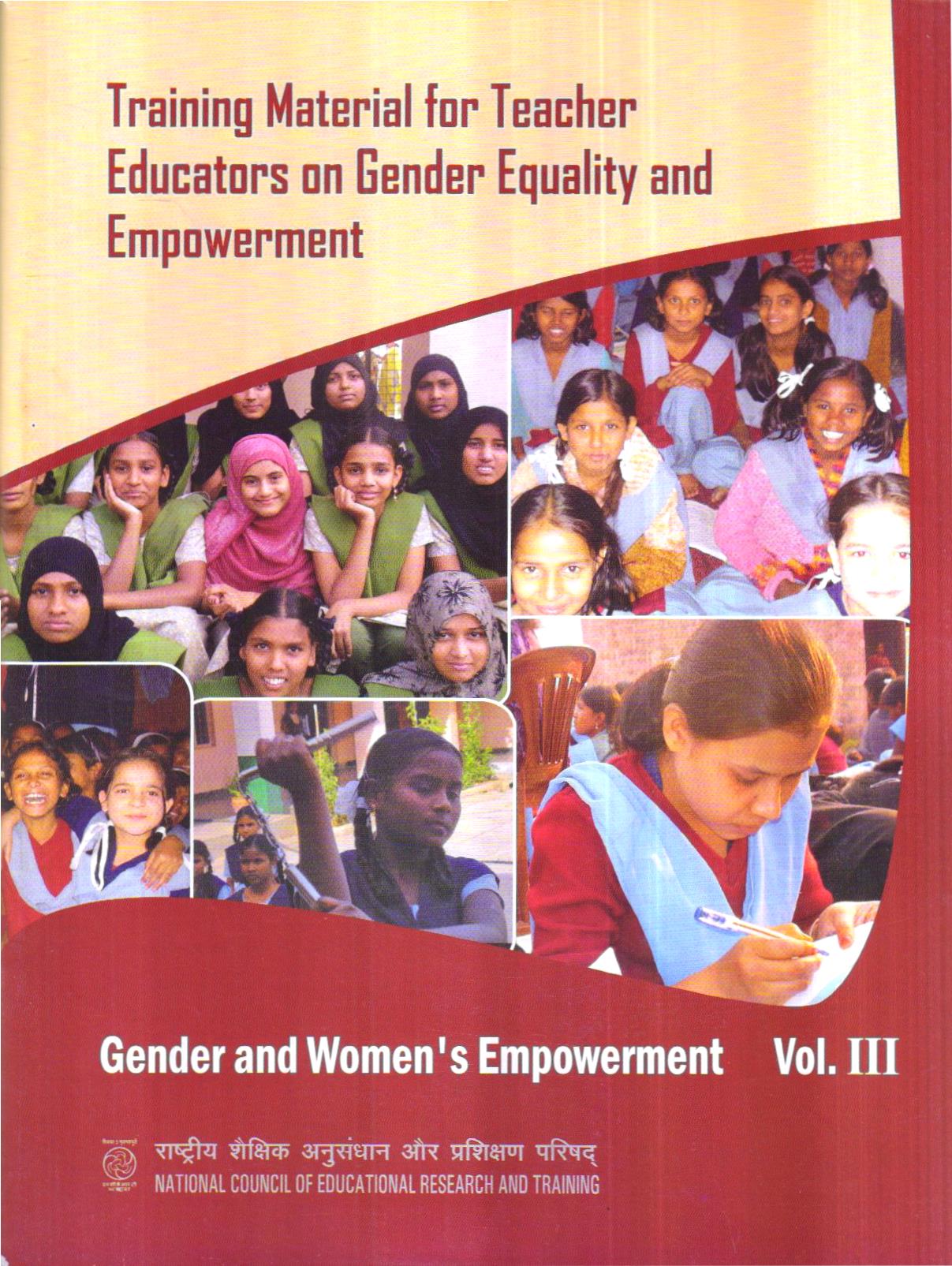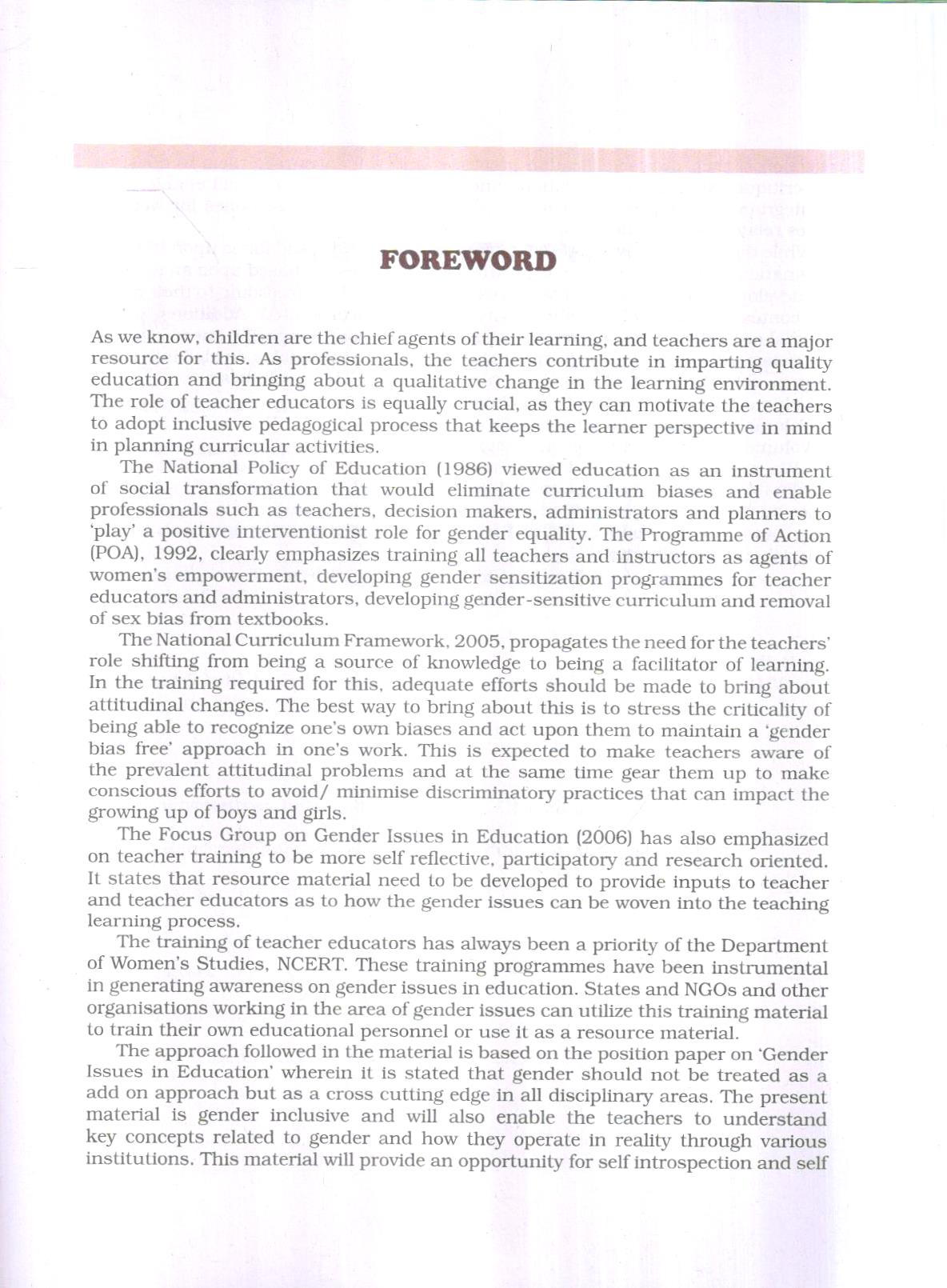Gender And Women’s Empowerment Vol- I
FOREWORD
As we know, children are the chief agents of their learning, and teachers are a major resource for this. As professionals, the teachers contribute in imparting quality education and bringing about a qualitative change in the learning environment. The role of teacher educators is equally crucial, as they can motivate the teachers to adopt inclusive pedagogical process that keeps the learner perspective in mind in planning curricular activities.
The National Policy of Education (1986) viewed education as an instrument of social transformation that would eliminate curriculum biases and enable professionals such as teachers, decision makers, administrators and planners to ‘play’ a positive interventionist role for gender equality. The Programme of Action (POA). 1992, clearly emphasizes training all teachers and instructors as agents of women’s empowerment, developing gender sensitization programmes for teacher educators and administrators, developing gender-sensitive curriculum and removal of sex blas from textbooks.
The National Curriculum Framework, 2005, propagates the need for the teachers role shifung from being a source of knowledge to being a facilitator of learning. In the training required for this, adequate efforts should be made to bring about attitudinal changes. The best way to bring about this is to stress the criticality of being able to recognize one’s own blases and act upon them to maintain a ‘gender bias free approach in one’s work. This is expected to make teachers aware of the prevalent attitudinal problems and at the same time gear them up to make conscious efforts to avoid/ minimise discriminatory practices that can impact the growing up of boys and girls.
The Focus Group on Gender Issues in Education (2006) has also emphasized on teacher training to be more self reflective, participatory and research oriented. It states that resource material need to be developed to provide inputs to teacher and teacher educators as to how the gender Issues can be woven into the teaching learning process.
The training of teacher educators has always been a priority of the Department of Women’s Studies, NCERT. These training programmes have been instrumental In generating awareness on gender issues in education. States and NGOs and other organisations working in the area of gender issues can utilize this training material to train their own educational personnel or use it as a resource material.
The approach followed in the material is based on the position paper on ‘Gender Issues in Education’ wherein it is stated that gender should not be treated as an add-on approach but as a cross-cutting edge in all disciplinary areas. The present material is gender inclusive and will also enable the teachers to understand key concepts related to gender and how they operate in reality through various institutions. This material will provide an opportunity for self-introspection and self










Reviews
There are no reviews yet.